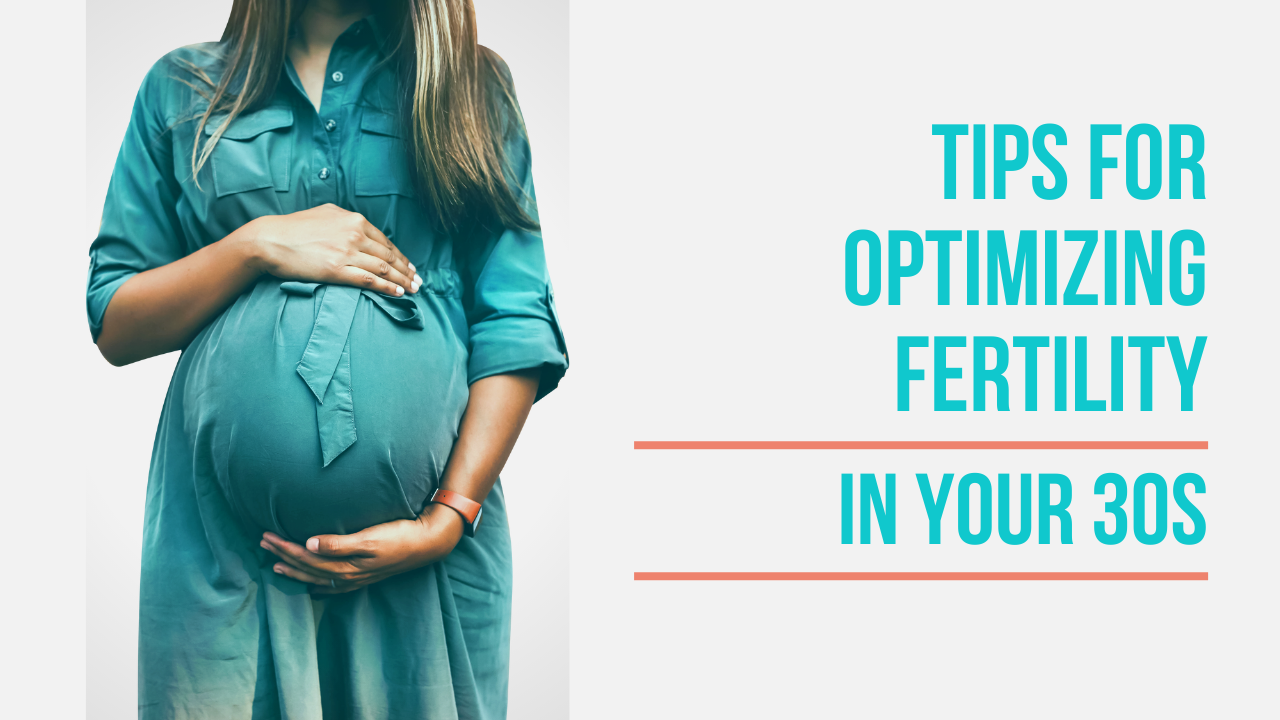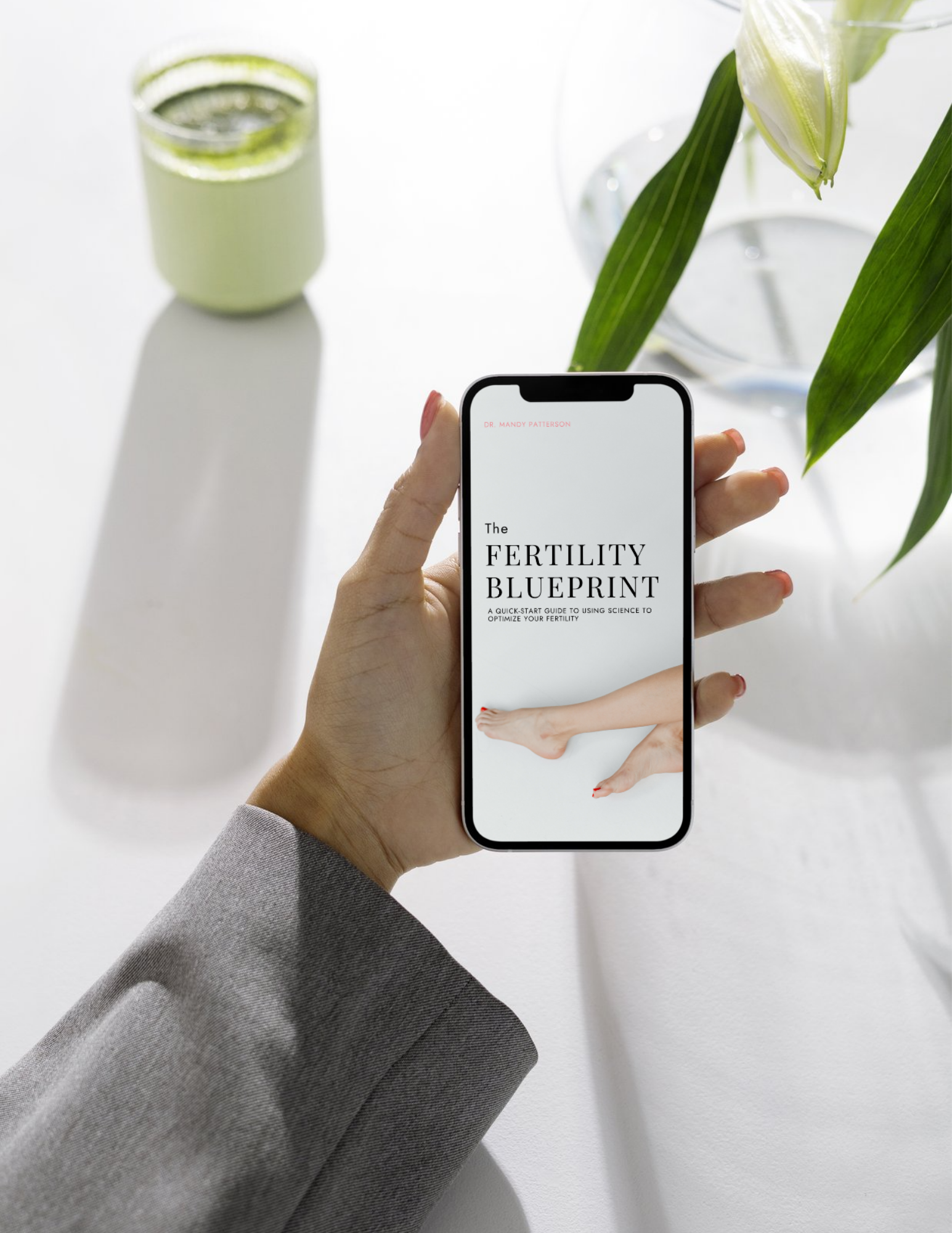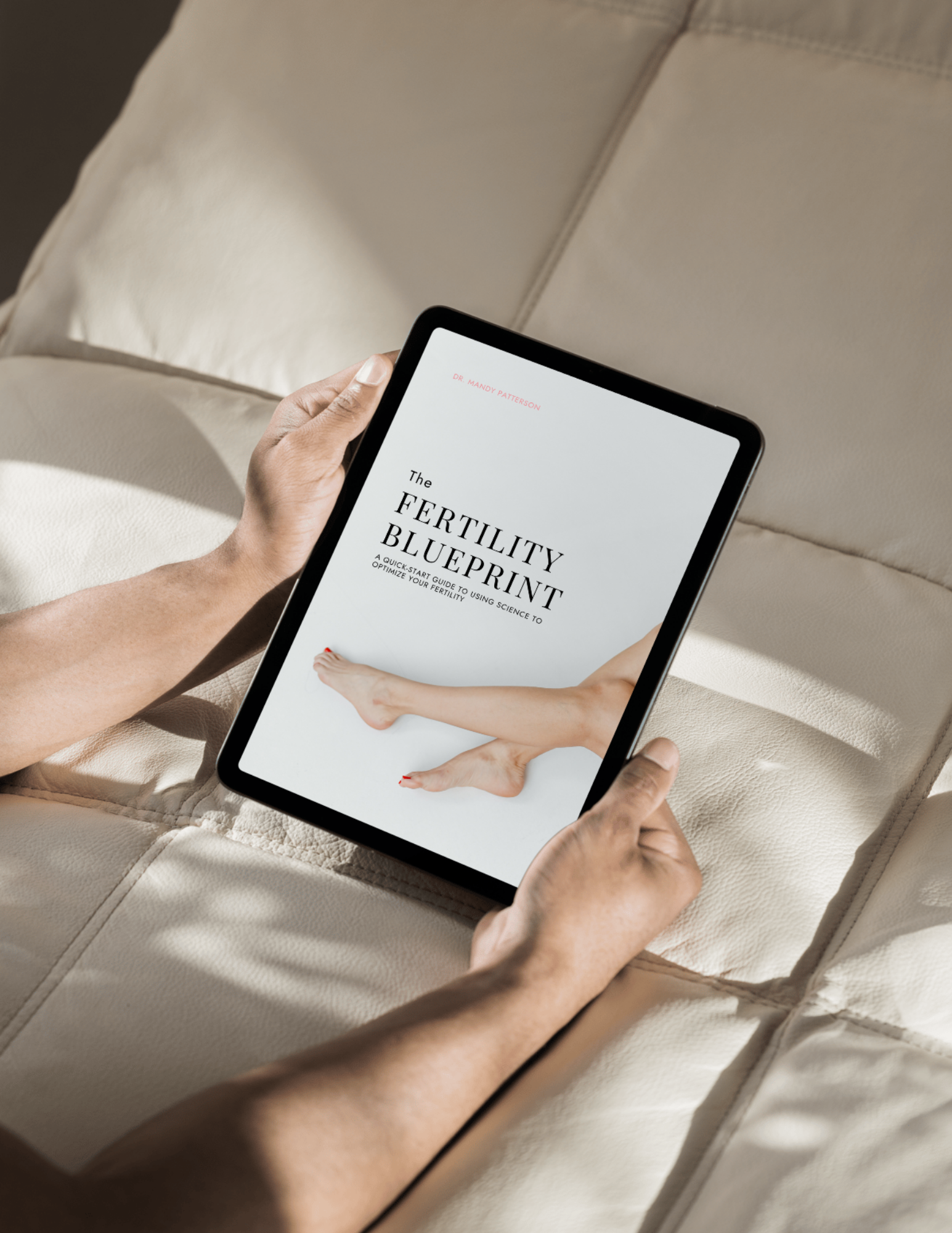If you’ve always imagined being a mom one day, you might be left wondering, is it too late to optimize my fertility? There are a lot of misconceptions about fertility in your 30s. The good news is that it’s NOT too late!
Women are giving birth later, and it’s no surprise with the myriad of reasons from personal to professional, financial, and more! In fact, the average age for first-time moms has risen from 27 to 30 over the last ten years.
By the time you are 30 or 35, what do you need to know about optimizing your fertility and chances of conceiving and having a healthy pregnancy?
Conceiving children in your 30s is not the taboo that you may think. This article will shed light on the truth about fertility in your 30s as well as share tips for optimizing fertility in your 30s. As a fertility coach and mom of six, this topic is close to my heart.
Is it Harder Being Pregnant in Your 30s?
Women are born with all the eggs they will ever have. The quantity and quality of a woman’s eggs, or the number of healthy, normal eggs that a woman has left inside her ovaries, declines with age. This is called your ovarian reserve, which begins to diminish in your early 30s.
In addition to lower egg quantity, egg quality declines as well, with older women more likely to have abnormal chromosomes compared to eggs in those that are younger.
Not only that but changing hormones and pre-existing conditions are important aspects of fertility in your 30s. Women in their mid to late 30s have a high risk of developing conditions that may affect pregnancy and conception, like uterine fibroids, ovarian cysts, endometriosis, and pelvic inflammatory disease.
The above information is the “bad news.” Yes, you may not be a fertile myrtle in your 30s, but if you imagine your fertility taking a nosedive after 30, let me help you get the picture right.
Research shows that women ages 30-34 have an 86% chance of getting pregnant within one year of trying and a 94% chance after two years. Meanwhile, for women 35-39 there is an 82% chance of getting pregnant after one year and a 90% chance of conceiving after two years. Ultimately, research indicates that many infertile couples will conceive if they try for an additional year.
How Can You Increase Fertility in Your 30s?
Now that you know the facts about fertility in your 30s, let’s discuss how to make the trying to conceive process a little less trying.
It is possible to optimize fertility in your 30s, but it takes diet and lifestyle changes. Luckily, you can implement various lifestyle habits to protect your egg quality, reproductive health, and hormone health. All of these things support optimal fertility!
Moreover, some reproductive health specialists are finding that reproductive health may have less to do with chronolocial age and more to do with biological age. While chronological age increases at the same rate for everyone, biological age does not. How fast your cells deteriorate depends on various factors like genes and lifestyle choices, such as eating and exercise habits.
At any rate, here are tips for optimizing your fertility in your 30s!
-
Talk to your healthcare provider.
As soon as you start trying to conceive (TTC), speak to a healthcare specialist. You can review your menstrual health and get lab work done to rule out conditions like hypothyroidism, amenorrhea, PCOS, and nutrient deficiencies that may adversely affect your fertility. At this point, it’s all about setting yourself up for success!
-
Replenish nutrients lost from birth control.
Birth control pills deplete your body’s stores of vital nutrients and minerals. Specifically, the pill can deplete your body of B12, B2, B6, Selenium, Magnesium, Zinc, Vitamin C, Vitamin E, & Folate. These are essential nutrients that drive critical biochemical pathways in our bodies.
It is important to supplement with a multivitamin alongside the pill to prevent these long-term nutrient depletions. In addition, after you stop taking the pill and are ready to start #TTC, continue taking a multivitamin for a minimum of three months to ensure that these nutrient levels are fully restored.
-
Eat an anti-inflammatory diet.
Oxidative stress occurs when your antioxidant levels are low. When there is an imbalance of reactive oxygen species, also known as free radicals, and antioxidant defenses, your body experiences oxidative stress. Oxidative stress causes damage to your body’s cells.
Remember, your eggs are cells, and all your organs are made of cells!
Eating plenty of antioxidant-rich and anti-inflammatory foods, drinks, herbs, and spices can protect your cells from oxidative damage. Here are some foods to consider adding to your diet:
- Colorful fruits and vegetables
- Nuts and seeds
- Olives and olive oil
- Cold water fish
-
Prioritize sleep and stress management.
It’s easy to focus so much on food and fitness that stress and sleep get overlooked. However, these components of health work hand-in-hand. Eating well and exercising are hard if you are stressed out and exhausted!
Further, while it is difficult to demonstrate a precise cause-effect relationship between stress and infertility, it is clear that there is an association between the two.
While easier said than done, it’s critical to manage stress if you are trying to conceive in your 30s.
Here are some tips to help you manage stress:
- Spend more time with family and friends
- Reduce the time on your phone
- Go to an infrared sauna
- Practice deep breathing
- Exercise
- Don’t bring work home
- Get enough sleep
- Practice positivity
Work with a Fertility Coach
The truth is, fertility in your 30s does not have to be scary. Fertility coaching is the perfect choice for you, no matter where you are on your fertility journey. Whether you have been trying for years or are just beginning to consider pregnancy, this is a great time to cover essential topics for your fertility and well-being.
If you’re interested in learning more about fertility coaching, contact me. As a Doctor of Naturopathy, Certified Holistic Health Coach, and Fertility Coach, I’m dedicated to helping you achieve success on your fertility journey.
Not to mention, I’m a mom of six, so I’ve got plenty of experience to share! My goal is to help you feel prepared and nourish your physical, emotional, and mental well-being as you work to optimize your fertility in your 30s.


















